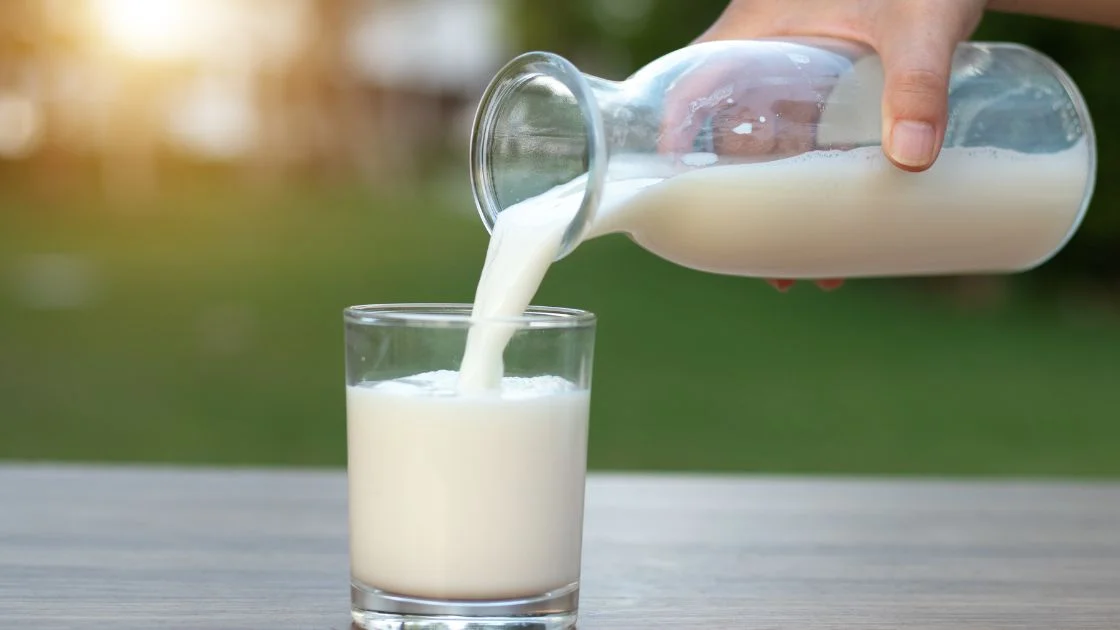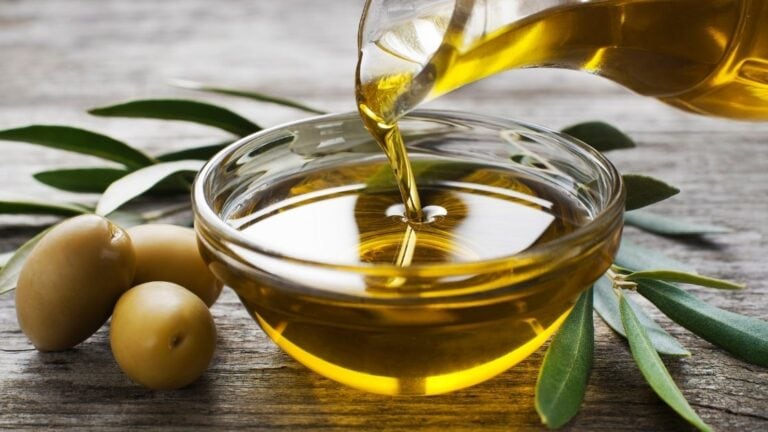- It is a popular choice for those looking for a healthier alternative to full-cream milk
- It is low in saturated fat, which lowers the risk of heart disease
- It can help with weight management by being low in calories and high in protein
- It is a good source of calcium and other vital nutrients for a healthy diet
- It may have some drawbacks, such as being lower in fat-soluble vitamins and potentially containing additives
Skim milk, also known as non-fat milk, is a popular choice for those looking for a healthier alternative to whole or full-cream milk. But is the skinnier version really good for you?
In this blog, we will discuss skimmed milk’s health benefits and whether it should be a part of your daily diet.
A Brief Overview
This type of milk has removed all of its creams, resulting in a low fat content.
It is a popular choice among people who are looking to reduce their fat intake without sacrificing the nutritional benefits of milk.
In the United States, skimmed milk must contain less than 0.5% milk fat by weight, according to the FDA.
Why Do People Choose Skimmed Milk?
Fat free milk gained popularity for a variety of reasons, including weight management, reducing cholesterol intake, and preventing heart disease.
It is also a good source of calcium and other vital nutrients that are essential for a healthy diet.
“But is skimmed milk as healthy as we think?”
Despite its popularity and perceived health benefits, it’s important to note that there has been some debate surrounding low-fat milk.
This blog will explore whether the cream (or, rather, lack thereof) is worth the squeeze.
Nutritional Content of Skim Milk

Comparison With Whole Milk
Because this milk variety has a reduced fat content, it may not be as satisfying as full cream milk.
This can make you feel hungry sooner after having a glass or with your cereal.
Whole milk, on the other hand, contains more fat but also provides more fat-soluble vitamins.
Ultimately, the choice between skimmed and whole milk depends on individual dietary needs and preferences.
Benefits
Lowers risk of heart disease
Fat-free milk is low in saturated fat, which is linked to an increased risk of heart disease.
By choosing 2 percent milk over full cream milk, you can significantly lower your risk of heart disease and improve your overall heart health.
Helps with weight management
As we know, this is a low-fat and low-calorie alternative to milk.
This makes it an excellent choice for those looking to manage their weight.
It can also help you feel fuller for longer, which can reduce your overall calorie intake throughout the day.
Good source of nutrients
Milk is a good source of calcium and other important nutrients essential for a healthy diet.
It is especially important for strong bones and teeth; vitamin D helps your body absorb calcium more effectively.
Potential Drawbacks
It is lower in fat-soluble vitamins.
Because that fat is removed, naturally, it is lower in fat-soluble vitamins like A, E, and K.
While these vitamins can be found in other foods, it is important to make sure that you are getting enough of them in your diet.
May contain additives
Some milk manufacturers may add additives like sugar, thickeners, and artificial flavors to improve the taste and texture of the milk.
Be sure to read the label carefully to ensure you are getting a pure, unadulterated product.
Skim Milk and Weight Loss
Skim milk can be an effective tool for weight loss for a few reasons:
First, it is lower in calories than whole milk, which can help reduce overall calorie intake.
Additionally, it is higher in protein, which can help you feel fuller for longer and reduce the urge to snack between meals.
In fact, several studies have shown a link between consuming skinny milk and weight loss.
For example, a 2012 study published in the American Journal of Clinical Nutrition found that overweight women who consumed more no-fat dairy products lost more weight and body fat than those who consumed less.
So, if you are looking to incorporate skim milk into your weight loss diet, here are a few tips to keep in mind.
First, consider swapping out whole milk for low-fat in your coffee, tea, or cereal.
This can reduce your calorie intake without sacrificing the nutritional benefits of milk.
You can also use fat-free milk in smoothies, protein shakes, and other recipes that call for milk.
Finally, try incorporating this into your post-workout routine to help repair and rebuild muscle tissue.

Skim Milk and Bone Health
Calcium is an essential mineral for bone health.
It helps build and maintain strong bones and reduces the risk of osteoporosis later in life.
While it can be found in many foods, dairy products are among the best sources.
In fact, one cup of skim milk contains about 300 milligrams of this mineral, which is about 30% of the recommended daily intake for most adults!
Mik is also often fortified with vitamin D, which helps the body absorb minerals more effectively.
Several studies have supported the claim that milk can benefit bone health.
For example, a 2008 study published in the Journal of Nutrition found that women who consumed more low-fat dairy products had higher bone mineral density than those who consumed less.
Another study published in the Journal of the American College of Nutrition found that consuming low-fat products was associated with a lower risk of hip fractures in older adults.
Skim Milk and Heart Health
Saturated fat is commonly found in animal products, such as meat and dairy.
Consuming too much of it has been linked to an increased risk of heart disease – it can raise LDL cholesterol levels. (In case you don’t know, this is the “bad” cholesterol.)
Skimmed milk, as the name suggests, is made by removing fat. Naturally, this means it contains little to no saturated fat.
By swapping out whole milk for the reduced-fat variety, you can significantly reduce your intake of saturated fat without sacrificing the nutritional benefits of milk.
A 2016 study published in the American Journal of Clinical Nutrition found that consuming low-fat dairy products was associated with a reduced risk of cardiovascular disease.
So You Go Skinny?
Skim milk is a popular dairy product that has many potential benefits.
It is low in calories and milkfat so you can shake a few pounds.
It is also a great source of calcium and vitamin D, which are important for bone health.
As we’ve seen, research has also suggested that consuming skim milk may be beneficial for heart health.
While skim milk may have some potential drawbacks to keep in mind, incorporating it into your diet can be a smart choice for overall health and wellbeing.
Whether you’re looking to lose weight, support bone health, or reduce your saturated fat intake, skinny is a versatile and nutritious option.









